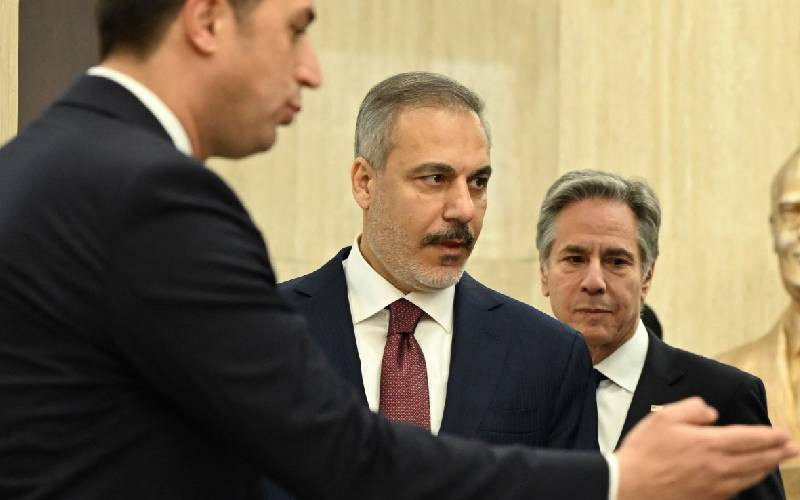×
The Standard e-Paper
Fearless, Trusted News

US Secretary of State Antony Blinken on Friday told Turkey it was "imperative" to work against a resurgence of the Islamic State (IS) group in Syria following the fall of Bashar al-Assad.
The top US diplomat also said he saw "encouraging signs" on reaching a ceasefire in the war-torn Gaza Strip.